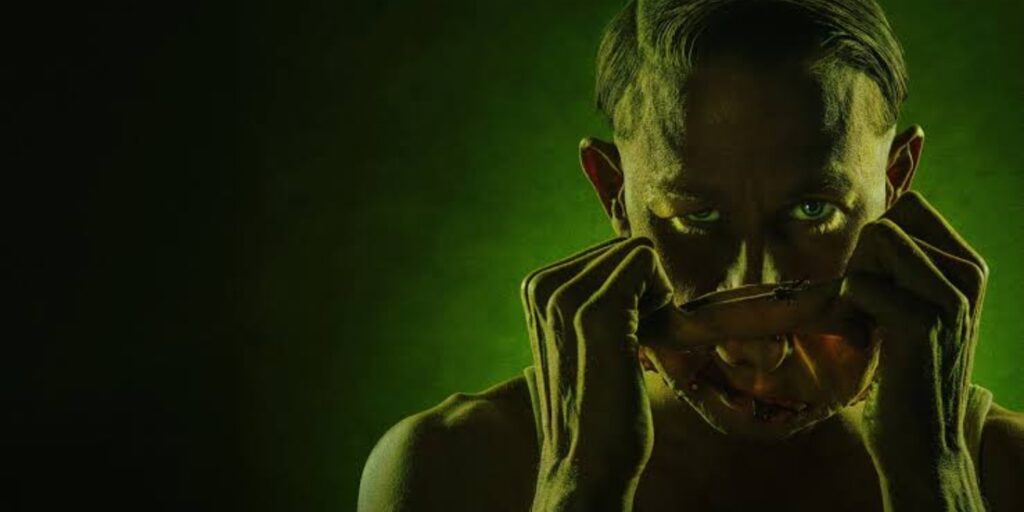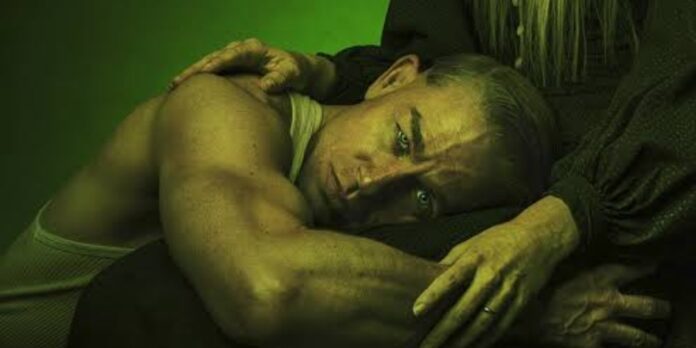Netflix’s ‘Monster: The Ed Gein Story’ arrives with the promise of delving deep into one of the most notorious figures in American crime history. On paper, it has everything that could make for a gripping, horrifying, and psychologically layered exploration.
It’s inspired by a real-life murderer whose actions inspired ‘Psycho’, ‘The Texas Chain Saw Massacre’, and ‘The Silence of the Lambs’. Yet somehow, what could have been a chilling psychological masterpiece ends up being appalling.
Despite The Name, The Show Barely Focuses On Ed Gein

The series tries to be everything at once. It’s a biography, a commentary on horror cinema, a psychological thriller, and even a quasi-historical documentary. However, it succeeds at none. It’s partly good, but ultimately it’s a misguided disaster that neither respects its subject matter nor understands what makes true crime compelling in the first place. For a show titled ‘Monster: The Ed Gein Story’, you’d expect the series to actually focus on Ed Gein.
Related: ‘Peaky Blinders’ Direct Sequel Confirmed As Netflix Greenlights Multi-Season Follow-Up
Shockingly, that’s where it begins to crumble. The story constantly shifts away from its titular character. Instead, it fixates on how his crimes “inspired” Hollywood’s horror icons. The narrative bizarrely detours into dramatized sequences of Alfred Hitchcock creating ‘Psycho’ and Tobe Hooper making ‘The Texas Chain Saw Massacre’. These moments are not only unnecessary but also tone-deaf, as if the series is urging viewers to celebrate Gein’s “legacy.”
The show glorifies a murderer by emphasizing his “impact” on cinema rather than unpacking the depravity that made him infamous. What should have been an unsettling study of a disturbed man turns into a montage of Hollywood self-reference. Charlie Hunnam, however, is one of the few redeeming elements. His eerie stillness, vacant stare, and soft-spoken menace make for an occasionally chilling portrayal.
There are moments where Hunnam’s performance evokes true horror. Unfortunately, even his dedication couldn’t save the script. Worse still, ‘Monster: The Ed Gein Story’ stretches its already flimsy narrative over eight long, repetitive episodes. The pacing drags like a slog through mud, every episode clocking in at over 50 minutes with little new information to offer. What could’ve been a two-hour psychological drama becomes a tone-deaf mini-series.
‘Monster: The Ed Gein Story’ Has Conflicting Direction

By the time the series reaches its finale, it loses all pretense of seriousness. What begins as a grim exploration of Gein’s psyche descends into what feels like a parody of true crime storytelling. The final episode introduces an absurd subplot that mimics Netflix’s own ‘Mindhunter’. Fans have been clamoring for Mindhunter’s return for years, and what Monster offers instead feels like a joke.
In case you missed it: Why Netflix’s ‘Wayward’ Feels Too Real To Be Fiction
Beyond that, ‘Monster: The Ed Gein Story‘ suffers from an identity crisis. It wants to be artful but ends up grotesque; it wants to be horrifying but becomes laughable. The show’s depiction of Gein’s mental illness and gender dysphoria is particularly troubling. Scenes of Gein cross-dressing in human skin, meant to be terrifying, instead come across as exploitative. Instead of providing understanding or empathy, the writing feels like it’s excusing or romanticizing his actions.
The show seems torn between condemning and sympathizing with Gein. Every show aims to elicit emotion, be it fear, sadness, or intrigue. ‘Monster: The Ed Gein Story’ manages none of these effectively. What it does provoke is exhaustion, disgust, and frustration. The viewer feels trapped, much like the victims in Gein’s horrifying reality. In the end, the show isn’t just a disappointing entry in Netflix’s Monster anthology; it’s a deeply misguided one.





